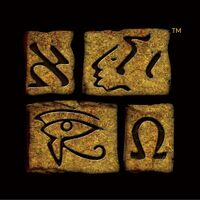
FAIR is a non-profit organization dedicated to providing well-documented answers to criticisms of the doctrine, practice, and history of The Church of Jesus Christ of Latter-day Saints.

It is claimed that Joseph Smith plagiarized Shakespeare in order to write portions of The Book of Mormon. However, there is no evidence that Joseph had read Priest's book. Even so, there is so little of it that has parallels with the Book of Mormon that this would provide a forger with little help. The passages which suggest Shakespeare are better explained by other ancient parallels; in any case, these passages provide very little that would assist in writing the Book of Mormon.
| The Wonders of Nature(1825) | Book of Mormon | Other similar phrases |
|---|---|---|
| I then requested him to leave me, as my time was short, and I had some preparation to make before I went hence to "that bourne from whence no traveller returns." (p. 469) | "Awake! and arise from the dust, and hear the words of a trembling parent, whose limbs ye must soon lay down in the cold and silent grave, from whence no traveler can return; a few more days and I go the way of all the earth. " (2 Nephi 1:14) |
|
The phrase "from whence no traveller returns" quoted by Josiah Priest is from Shakspeare's Hamlet. Therefore, an alternate criticism is the Joseph Smith plagiarized this line from Hamlet.
B.H. Roberts notes that the critic "fairly revels in the thought that he has Lehi quoting Shakespeare many generations before our great English poet was born; and indulges in the sarcasms which Campbell and more than a score of anti-Mormon writers have indulged in who have mimicked his phraseology." Roberts notes that the Book of Job, contained in the Jewish scriptures that Lehi certainly would have been familiar with, contains two passages "which could easily have supplied both Shakespeare and Lehi with the idea of that country 'from whose bourn no traveler returns.'" In other words, Lehi could have obtained his idea from the same source from which Shakespeare obtained the inspiration for his phrase. Roberts concludes:
Wrote Hugh Nibley:

FAIR is a non-profit organization dedicated to providing well-documented answers to criticisms of the doctrine, practice, and history of The Church of Jesus Christ of Latter-day Saints.
We are a volunteer organization. We invite you to give back.
Donate Now